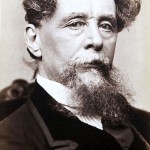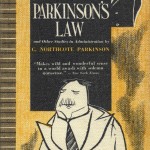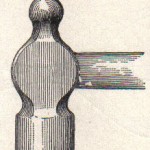Monthly Archive:: September 2013
30 Sep 2013
Looking back from 1943, artist remembers days before ‘firing squads and economic chiselers in the newspaper business’
I dedicate this Monday Reading to the recently unemployed graphic artists of my acquaintance in particular, and in general to all the newsroom artists I’ve worked with. As newsrooms became more professional — in the worst sense of the word — and the tolerance for dealing with creative personalities declined, the art departments seemed to
27 Sep 2013
Steal this idea: An interactive sports Believe-O-Meter

I can’t take all the credit for the Cleveland Indians’ remarkable late-season playoff run; I’m sure their players and coaches had a little to do with it. But I’m sure that they were inspired by a desire to boost the team’s rating on The Plain Dealer/cleveland.com Believe-O-Meter: The story of the meter, in brief: For
25 Sep 2013
The case for online comments

Popular Science shuts off comments on its website; cue the Comment Wars again. I can’t help myself. So: my counterarguments to the comment critics. (The executive summary: The problem with online comments isn’t the commenters. The problem is lazy, cheap, cowardly or clueless site bosses.) People say nasty things in comments People say nasty things
24 Sep 2013
4 things journalists bring to fiction

If journalism’s gifts to fiction can be as varied as Charles Dickens, Mark Twain, Ernest Hemingway, Willa Cather and Donald Barthelme, distiling the tools that separate them from other fiction writers is an exercise in hedging. Kinda this, a lot of that but not always … After some hurried research for a presentation on narrative
20 Sep 2013
7 common pitfalls of newspaper narratives

I spent the last few days reading over many pieces of narrative non-fiction, to talk to a creative writing workshop about the mutually parasitic relationship between literature and journalism. I found myself stumbling over the same things, mostly in newspaper narratives. 1. Dialogues with the unseen, unheard extra character You’re used to filtering your interviews
16 Sep 2013
Journalism needs a Parkinson’s Law (or, did Wolf Blitzer really ask that question?)

Somewhere in the middle of CNN’s ceaseless reporting of what it didn’t know about the shooting today at the Washington Navy Yard, in between Wolf Blitzer’s precise references to an upcoming news conference by “the President of the United States” (to clarify for all of those expecting the President of Bolivia), the anchor asked whether
16 Sep 2013
Hemingway the reporter vs. Hemingway the author

I was doing some research for a presentation on narrative journalism and journalistic fiction when I ran across a 2012 blog post by Bill Henderson on Write a Better Novel. He put side by side a passage from a story Ernest Hemingway filed for the Toronto Star and the same scene in his first fiction,
13 Sep 2013
These 7 sins aren’t just deadly on social media: Attention, news websites
Steph Parker posted “The 7 new deadly sins of social media” on Socialmedia Today this month. A lot of good advice packed into a relatively short post: Misappropriation Just because something happens doesn’t mean you have to take advantage of it for your brand. There’s a difference between being clever and being annoying, and forcing
12 Sep 2013
If at first they do not learn, train, train again

Here are some words of encouragement for anyone asked to train people in a newsroom: You will fail. Within weeks after your training is complete, you will realize that some people are doing poorly at whatever you taught them. Some are doing the opposite of what you said. And some aren’t doing it at all.
11 Sep 2013
Don’t teach the tool; teach the task

The worst training sessions I’ve had to endure mostly consisted of the so-called trainer plodding through something — let’s say, a website stats tool — in a presentation that was more like an inventory than a lesson. Every button and every option was listed and explained. Two hours later, we students would emerge not much
- 1
- 2
